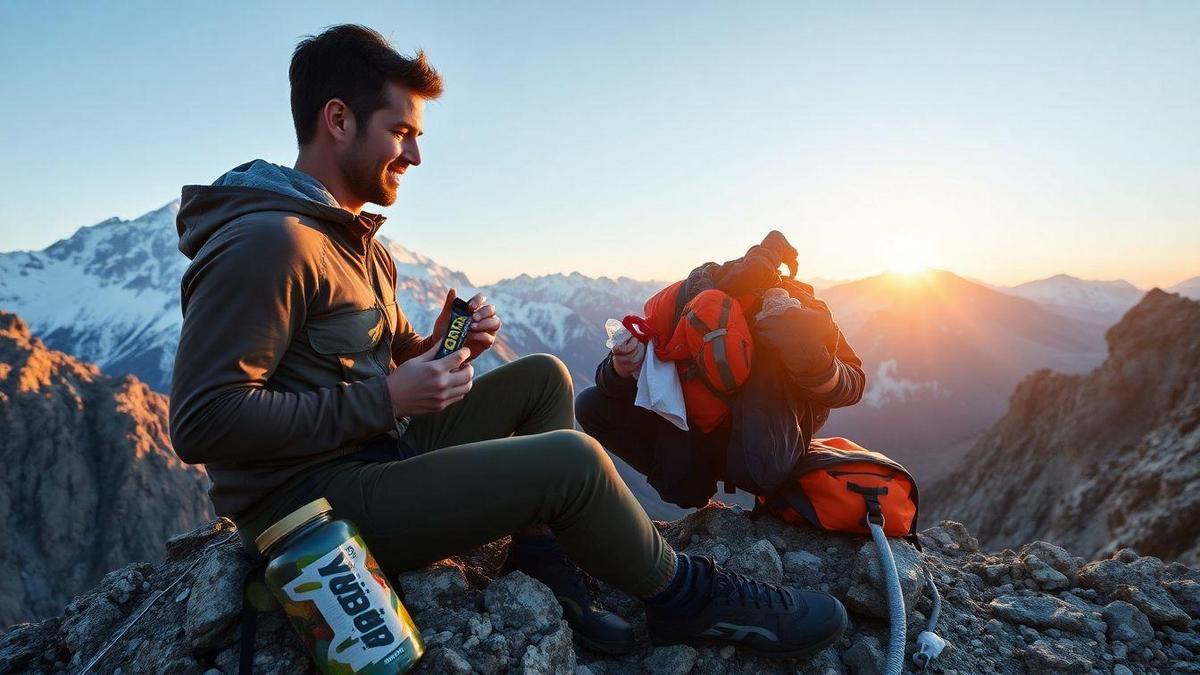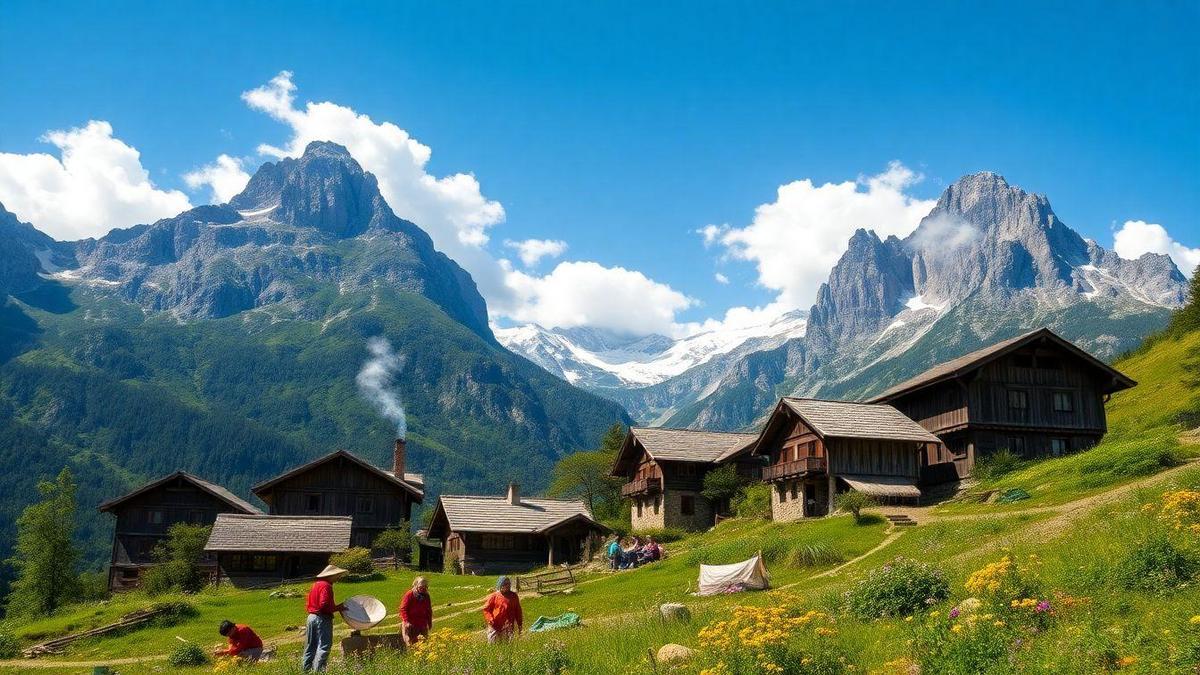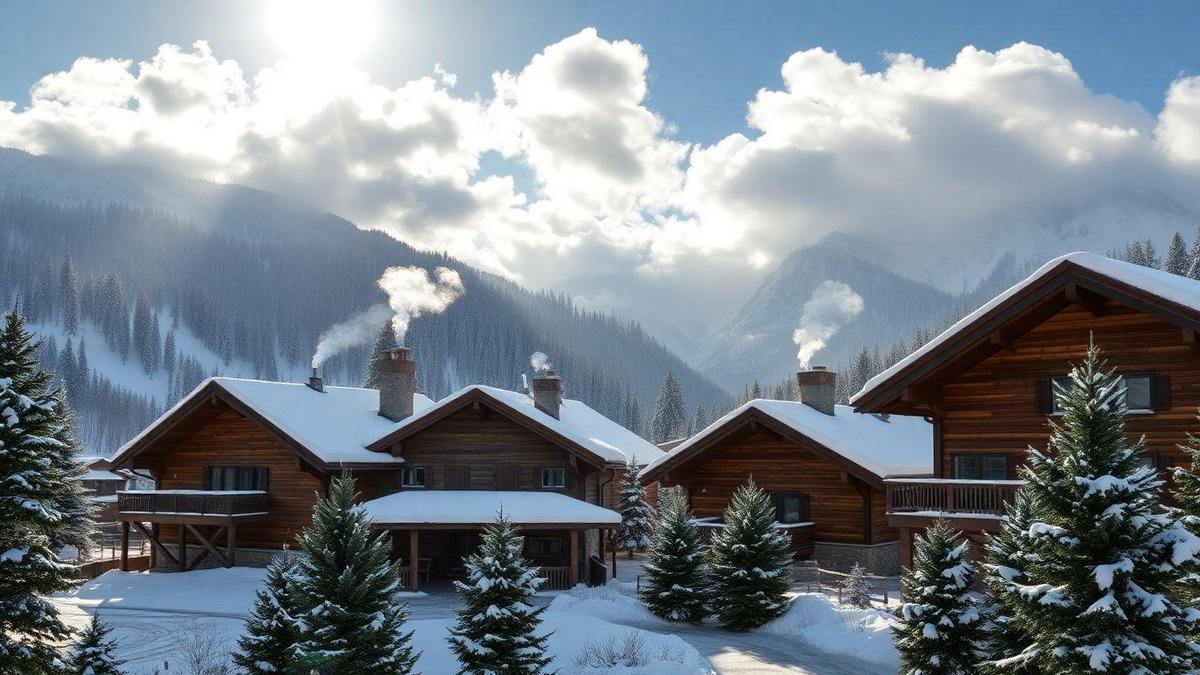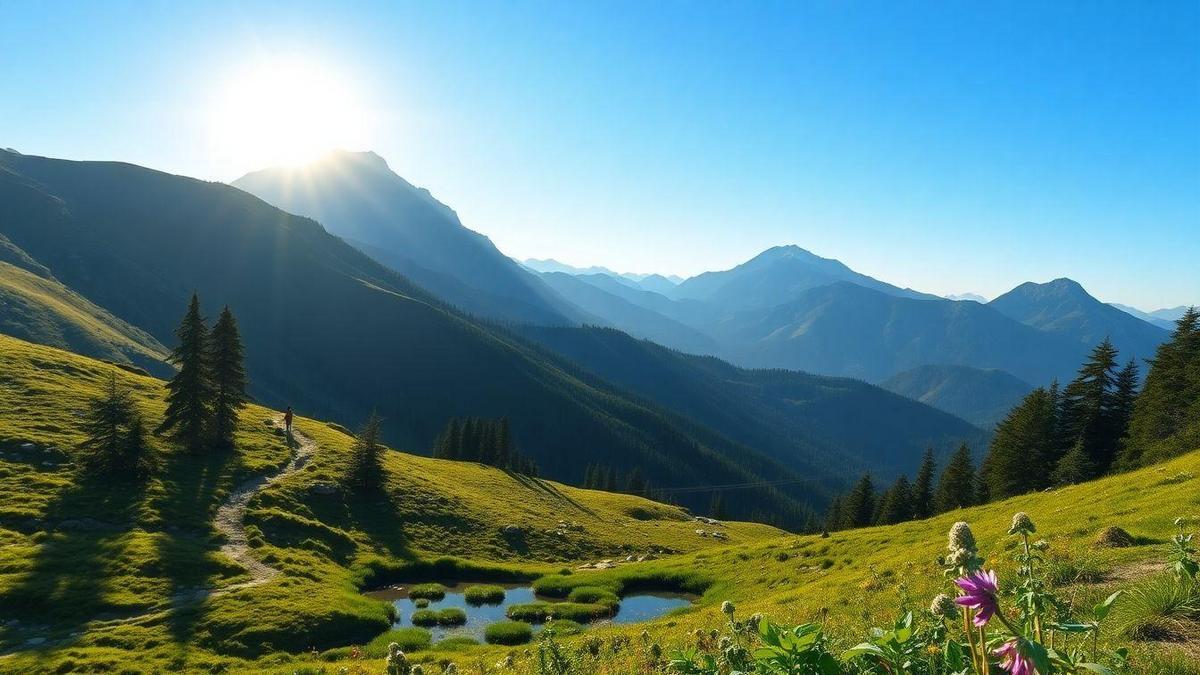
Importance of Proper Nutrition Before Climbing
How Nutrition Affects Your Climbing Performance
Nutrition plays a huge role in how well you climb. Think of your body as a car; without the right fuel, it won’t run smoothly. When you’re climbing, you need energy, strength, and focus. Proper nutrition helps you feel strong and ready to tackle tough trails. If you don’t eat well, you might feel tired or weak, making it harder to reach the top.
The Role of Carbohydrates in Your Diet
Carbohydrates are like the power source for your body. They provide the energy you need to climb. When you eat carbs, your body turns them into glucose, which fuels your muscles. This means more energy for climbing and less chance of feeling worn out. It’s important to load up on carbs before your climb to keep your energy levels high.
Key Carbohydrate Sources for Climbers
Here are some great sources of carbohydrates that can help you on your climbing journey:
| Carbohydrate Source | Benefits |
|---|---|
| Whole grains | Provides long-lasting energy |
| Fruits | Packed with vitamins and fiber |
| Vegetables | Great for hydration and nutrients |
| Nuts and seeds | Good source of healthy fats |
These foods can help you stay energized and focused while you climb. So, next time you’re planning a summit attempt, remember to fill your plate with these nutritious options!
Hydration Strategies for Climbers
Why Staying Hydrated is Crucial
When you’re climbing a mountain, staying hydrated is key. Your body works hard, and it needs water to keep going. Dehydration can lead to fatigue, headaches, and even serious health issues. Think of water as your best friend on this journey. It helps your muscles, keeps your mind sharp, and supports your overall performance.
Tips for Hydrating Before Your Climb
Before you hit the trails, make sure you’re drinking enough water. Here are some simple tips to help you hydrate effectively:
- Start Early: Begin drinking water at least a day before your climb. This way, your body is ready for the challenge.
- Set a Schedule: Aim to drink a glass of water every hour. Keeping a water bottle close can remind you to sip regularly.
- Monitor Your Urine: A light yellow color means you’re well-hydrated. Darker urine can be a sign to drink more.
Best Hydration Practices for Summit Success
To help you on your climb, here’s a handy table with hydration practices:
| Practice | Description |
|---|---|
| Drink Water | Aim for 2-3 liters a day before your climb. |
| Electrolyte Drinks | Consider drinks with electrolytes to replace lost minerals. |
| Hydrate During the Climb | Take small sips every 15-20 minutes while climbing. |
| Post-Climb Hydration | Rehydrate after your climb to recover faster. |
By following these strategies, you’ll be better prepared for your mountain adventure. Remember, hydration is not just about drinking water; it’s about fueling your body for success.
Pre-Summit Meal Planning
What to Eat the Night Before Your Climb
The night before your climb is crucial. You want to fuel your body with the right foods. Think of it as filling your tank before a long journey. Here are some ideas:
- Whole grains: Foods like brown rice or quinoa can give you lasting energy.
- Lean proteins: Chicken, turkey, or beans can help with muscle recovery.
- Healthy fats: Avocado or nuts can keep you feeling full longer.
- Veggies: Spinach or broccoli add vitamins and minerals.
Avoid heavy, greasy foods. They might make you feel sluggish. Instead, aim for a balanced meal that leaves you feeling light and energized.
Ideal Breakfast Foods for Climbers
Breakfast is your first chance to kickstart your day. A good breakfast can set the tone for your climb. Here are some great options:
- Oatmeal: It’s filling and provides slow-releasing energy.
- Bananas: They’re easy to digest and packed with potassium.
- Greek yogurt: It’s high in protein and can be paired with fruits or nuts.
- Smoothies: Blend your favorite fruits with some spinach for a nutrient boost.
Eating a mix of carbs, protein, and healthy fats will help you feel strong and ready to tackle the mountain.
Pre-Summit Meal Ideas to Fuel Your Adventure
Here’s a quick table with some meal ideas to consider:
| Meal | Food Ideas |
|---|---|
| Dinner (Night Before) | Brown rice, grilled chicken, steamed broccoli |
| Breakfast | Oatmeal with fruit, Greek yogurt, banana |
| Snacks (Before Climb) | Trail mix, energy bars, apple slices |
These meals will help keep you energized and focused. Remember, your body is your best friend on this adventure. Treat it well, and it will carry you to new heights.
Energy Bars and Snacks for Climbers
Choosing the Right Energy Bars
When you’re gearing up for a climb, picking the right energy bars is crucial. You want something that fuels your body and keeps you going. Look for bars that are high in carbohydrates and protein. Carbs give you quick energy, while protein helps your muscles recover.
Check the ingredients! You should aim for bars that are made with natural ingredients. Avoid those packed with artificial flavors and preservatives. Think of it as filling your tank with the best fuel possible.
Quick Snack Ideas for Climbing Days
Sometimes, you need snacks that are easy to grab and go. Here are some quick ideas:
- Trail mix: A mix of nuts, seeds, and dried fruit is perfect. It’s packed with energy and easy to carry.
- Jerky: High in protein and lightweight, jerky can keep you full for hours.
- Fruit: Apples and bananas travel well and are great for a quick energy boost.
These snacks can be your best friends on the mountain. They help you stay focused and energized.
Top Energy Bars to Pack for Your Climb
Here’s a handy table with some top energy bars you might want to consider:
| Brand | Key Ingredients | Protein (g) | Carbs (g) | Notes |
|---|---|---|---|---|
| Clif Bar | Oats, nuts, chocolate | 9 | 44 | Great for long climbs |
| RXBAR | Dates, egg whites, nuts | 12 | 24 | Simple ingredients |
| KIND Bar | Nuts, honey, chocolate | 6 | 20 | Chewy and satisfying |
| Larabar | Fruits, nuts | 4 | 22 | Made with just a few ingredients |
These bars are not just tasty; they can boost your energy when you need it most.
Understanding Electrolytes for Mountain Climbing
What Are Electrolytes and Why Do You Need Them?
When you’re climbing a mountain, your body works hard. You sweat, breathe heavily, and use a lot of energy. Electrolytes are tiny particles in your body that help keep everything running smoothly. They help with muscle function, hydration, and nerve signals. Without them, you might feel tired, cramp up, or even get dizzy.
In simple terms, electrolytes are like the oil in a car. Just as oil keeps the engine running well, electrolytes help your body work properly. So, when you’re on your climb, it’s crucial to keep your electrolyte levels up!
Foods Rich in Electrolytes for Climbers
Eating the right foods can help you maintain your electrolyte balance. Here’s a list of foods that are rich in electrolytes:
- Bananas: Great for potassium.
- Nuts: Packed with magnesium.
- Leafy Greens: Full of calcium.
- Coconut Water: A natural source of electrolytes.
- Salted Snacks: Help replace sodium lost through sweat.
Here’s a quick table to show you the key electrolytes and where to find them:
| Electrolyte | Food Sources |
|---|---|
| Sodium | Salted nuts, pretzels |
| Potassium | Bananas, potatoes |
| Magnesium | Nuts, seeds |
| Calcium | Leafy greens, dairy |
How to Maintain Electrolyte Balance on Your Climb
Keeping your electrolytes balanced during your climb is essential. Here are some tips to help you stay on track:
- Stay Hydrated: Drink water regularly, but also consider drinks with electrolytes.
- Snack Smart: Bring along snacks high in electrolytes, like trail mix or energy bars.
- Listen to Your Body: If you feel tired or crampy, it might be a sign you need more electrolytes.
By following these simple steps, you can keep your body happy and ready to tackle that mountain!
Climbing Nutrition Guide: Best Foods for Endurance
Nutrient-Dense Foods to Include in Your Diet
When you think about climbing a mountain, fueling your body is just as important as your gear. You want to pack foods that are high in nutrients to keep your energy levels up. Here are some top choices:
- Nuts and Seeds: Great for quick energy. They are full of healthy fats and proteins.
- Dried Fruits: Easy to carry and provide a quick sugar boost.
- Whole Grains: Think oatmeal or whole grain bread. These give you lasting energy.
- Lean Proteins: Chicken, turkey, or beans can help with muscle recovery.
- Energy Bars: Look for bars with whole ingredients that offer a mix of carbs and protein.
Meal Timing: When to Eat for Optimal Energy
Timing your meals can make a big difference. Eating at the right times can keep your energy steady. Here’s a simple guide:
| Meal Time | What to Eat | Why It Matters |
|---|---|---|
| Before Climbing | A mix of carbs and protein | Provides energy for your climb |
| During Climb | Snacks like nuts or energy bars | Keeps energy levels up |
| After Climbing | Protein and carbs | Helps muscles recover |
A Complete Nutrition Guide for Climbers
To climb your best, focus on a balanced diet. Here’s what you need to remember:
- Stay Hydrated: Water is key. Drink plenty before, during, and after your climb.
- Plan Your Meals: Think ahead about what to pack. Having a plan helps you avoid poor choices when you’re hungry.
- Listen to Your Body: If you feel tired, it might be time for a snack.
Frequently Asked Questions
What are the top nutrition tips for climbers before summit attempts?
Start with carbs. They give you energy. Focus on pasta, rice, or bread.
How much water should climbers drink before a summit?
Aim for at least two liters. Stay hydrated. Drink small sips throughout the day.
Should climbers eat snacks during the ascent?
Yes, definitely! Pack snacks like nuts or energy bars. They boost your energy quickly!
How can I avoid stomach issues while climbing?
Choose easy-to-digest foods. Avoid heavy meals before you climb. Simple is better!
Can I try new foods before a big climb?
It’s best to stick to foods you know. No surprises on summit day! Play it safe!


